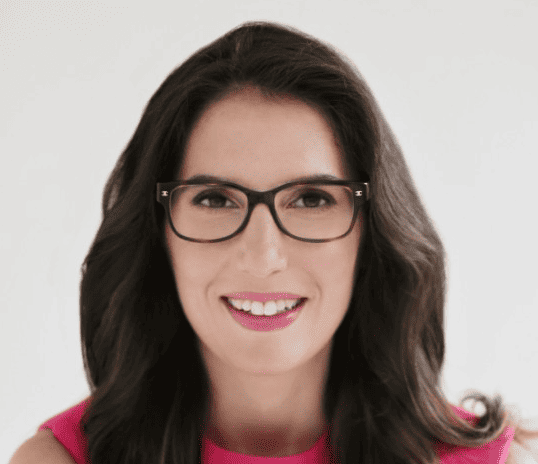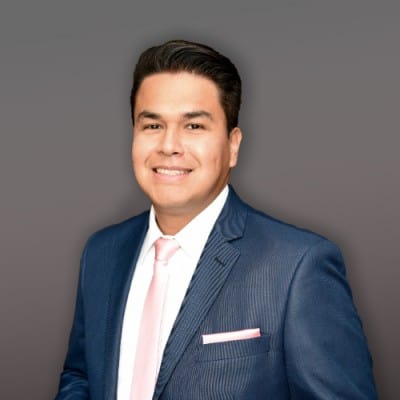To make Wealthtender free for readers, we earn money from advertisers, including financial professionals and firms that pay to be featured. This creates a conflict of interest when we favor their promotion over others. Read our editorial policy and terms of service to learn more. Wealthtender is not a client of these financial services providers.
➡️ Find a Local Advisor | 🎯 Find a Specialist Advisor

What is enough money? Do I have enough? Many people, including financially successful people, want to know when enough money is enough.
One Surprising Problem with Capitalism
The main problem with capitalism, as practiced in the US, is that it doesn’t do a great job of taking care of the poor. Our social safety nets aren’t up sufficient to take care of people who suffer mental health issues, lack education, are indebted by catastrophic health expenses, or are simply denied real opportunities. Curiously, another problem hits people on the higher end of financial success — not knowing when enough money is enough.
If you’re a successful professional (or on your way to becoming one), you’re probably working far more than is healthy for you. You may not be taking the time to be with your family, taking vacations and recharging, working out, or simply taking some well-deserved downtime.
This raises the question — how do you know when you have enough money? You can always aspire to make more. If you’re like most of us, you can struggle to make your first million (it’s mathematically easy to prove that’s the hardest one, by the way). If you’ve reached that milestone, you can work on your second, third, fourth, tenth, or hundredth million. At some point, making that next buck makes no appreciable difference in anything you (should) care about.
My Definition of Having Enough Money
After thinking about it for a while, here’s how I define when enough money will be enough for me: it’ll be when I can live on what I’ve accumulated, no matter how long my retirement is, without eating into the principal. This is what’s also known as the FIRE point, for Financial Freedom, Retire Early (though in any particular person’s case, it may not be all that early).
Why I want to leave all that money when I die is the subject of a different discussion, but for now, let’s take it as a given.
How to Calculate the Dollar Amount of Your Personal “Enough” Point
Here’s my simple, step-by-step guide on calculating the above point in actual dollars:
Step 1. Estimate your retirement budget total
Even if you know what you spend these days, figuring out accurately how that will change over the years and decades until you retire is not simple. Some spending categories, such as travel, entertainment, and gifts, will go up. Others, such as contributing to grandkids’ college funds, will get added. Yet others, such as gas and car maintenance, will likely decrease.
Finally, some, such as mortgage payments, may disappear altogether (assuming you pay off the mortgage by then). With so many unknowns, the simplest way to estimate your retirement budget is to take 100% of your current net income and subtract what you set aside for savings. For example, if your income is $75,000 and you invest 20% of that or $15,000 (way to go!), your guesstimated total retirement budget would be $60,000.
“The amount some needs to have saved to enjoy a comfortable retirement can vary greatly, depending on the lifestyle the retiree wants to live and the costs of their regular spending,” said David Edmisten, CFP and Founder of Next Phase Financial Planning.
“A good rule of thumb is to aim to have saved 25-30 times the amount you’ll spend each year, less any guaranteed income sources. So, for example, if you plan to spend $60K a year in retirement, you’ll want to have saved $1.5 million to $1.8 million before you retire.”
Step 2. Subtract expected income that’s outside your portfolio
The more income you get in retirement that doesn’t come from your portfolio, the less you need to set aside. Some examples include annuities, pensions, Social Security, rent from properties, royalties, etc.
Let’s say you don’t have any annuities, pensions, or royalties. Let’s further say you have a rental property that you expect will bring in a net positive cash flow of $6000 each year and that you expect to get $25,000 from Social Security. I’d reduce that last by 20% since that’s the size cut needed by 2035 if Congress doesn’t do anything, so make Social Security $20,000.
Subtract the $6000 net rental cashflow from the $60,000 example we got at the end of Step 1 and $20,000 reduced Social Security benefit, and we reach $34,000.
Step 3. Add back enough to account for taxes
Essentially, you need to estimate what your pre-tax total income needs to be, given that it will likely come from dividends, selling some bonds and/or shares of stocks, and Social Security benefits, to cover your budget with a bit of margin.
The exact amount will depend on where you live in retirement and your personal mix of income sources in retirement. For our example, let’s assume your overall tax burden will be 20% to get you to the $60,000 you’ll need. Divide the $60,000 by 0.8 and subtract out that $60,000 ($60,000/0.8 – $60,000 = $15,000), and you get an estimated total tax burden of $15,000. Add this to the $34,000 from Step 2, for a total pre-tax $49,000 that will need to be covered by your portfolio.
Step 4. Multiply by 25
Using the well-known 4% rule, you need to divide the $49,000 by 0.04 (or multiply it by 25), and you’ll get $1,225,000. If the above numbers and assumptions were all true and accurate for you, once your portfolio hits $1,225,000, that should be your personal “enough” point.
Then, all you need to do is set aside and invest enough each year to get to that point (I said it’s simple, not easy). Oh, and I’d also suggest you create a backup plan for making a bit of money in retirement just in case your investments underperform to the point that they don’t make 4% above inflation.
Needless to say, working as an employee makes the above difficult, requiring life-long discipline, hard work, and frugality. Becoming successfully self-employed makes it far easier (though still not quite easy).
What’s your definition of your “enough” point? Have you set out your strategy to reach it?
“If you’re ready to retire, but are not sure you’ve saved enough, there are a few steps to consider to help you get ready,” said Edminsten. “First, look to do what you can to reduce your required monthly spending. This can include paying off debts, and even considering paying off your home mortgage if you have one. Look at all areas of your normal spending and see what you can eliminate or reduce. The less money you need to live each month, the less savings you’ll need.”
Find Your Next Financial Advisor on Wealthtender
📍 Click on a pin in the map view below for a preview of financial advisors who can help you figure out when enough money is enough. Together, an experienced financial advisor can help you reach your money goals with a personalized plan. Or choose the grid view to search our directory of financial advisors with additional filtering options.
📍Double-click or pinch pins to view more.
Disclaimer: This article is intended for informational purposes only, and should not be considered financial advice. You should consult a financial professional before making any major financial decisions.

About the Author
Opher Ganel, Ph.D.
My career has had many unpredictable twists and turns. A MSc in theoretical physics, PhD in experimental high-energy physics, postdoc in particle detector R&D, research position in experimental cosmic-ray physics (including a couple of visits to Antarctica), a brief stint at a small engineering services company supporting NASA, followed by starting my own small consulting practice supporting NASA projects and programs. Along the way, I started other micro businesses and helped my wife start and grow her own Marriage and Family Therapy practice. Now, I use all these experiences to also offer financial strategy services to help independent professionals achieve their personal and business finance goals. Connect with me on my own site: OpherGanel.com and/or follow my Medium publication: medium.com/financial-strategy/.
Learn More About Opher
To make Wealthtender free for readers, we earn money from advertisers, including financial professionals and firms that pay to be featured. This creates a conflict of interest when we favor their promotion over others. Read our editorial policy and terms of service to learn more. Wealthtender is not a client of these financial services providers.
➡️ Find a Local Advisor | 🎯 Find a Specialist Advisor

























